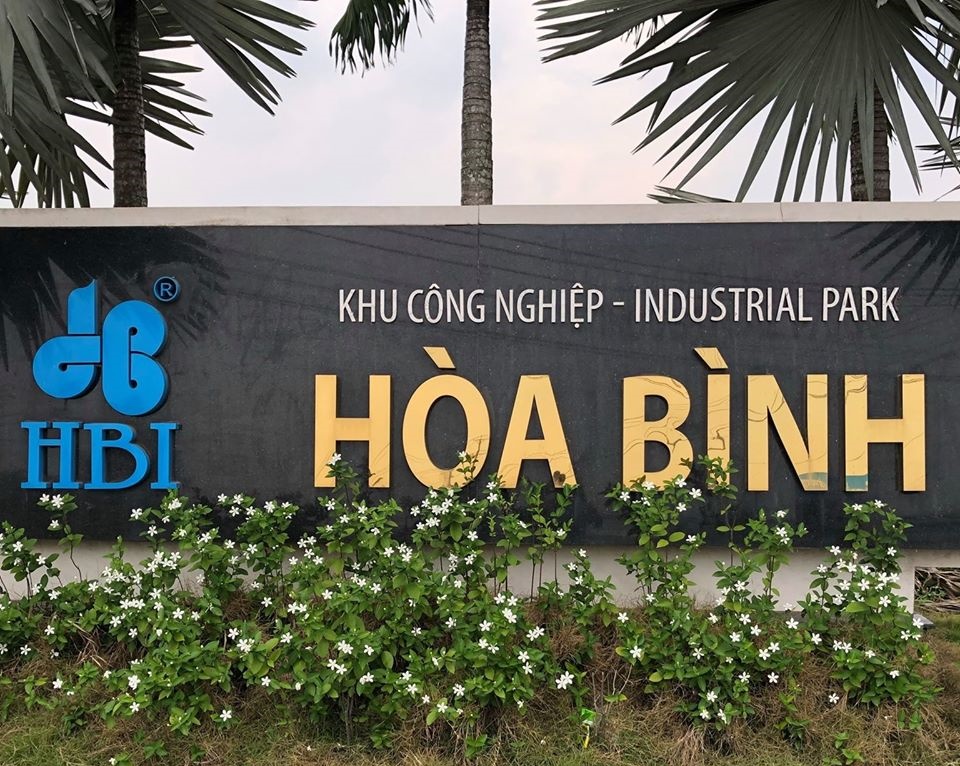Bất chấp phải đối mặt với nhiều thách thức từ diễn biến phức tạp của đại dịch COVID-19, Việt Nam vẫn tiếp tục ghi nhận những tín hiệu tích cực từ đầu tư nước ngoài trong năm 2021.
Theo Bộ Kế hoạch và Đầu tư (MPI), trong năm 2021, Việt Nam có 1.738 dự án FDI mới được cấp phép, giảm 31,1% về số lượng dự án so với năm 2020, nhưng vốn đăng ký của các dự án mới đạt 15,2 tỷ USD, tăng 4,1% so với năm trước đó.
Đặc biệt, các khu kinh tế và khu công nghiệp vẫn thu hút được 539 dự án FDI và 615 dự án đầu tư trong nước với vốn đăng ký mới đạt 12,8 tỷ USD, tăng 15% so với năm 2020.
Trong những năm gần đây, Việt Nam liên tục đưa ra các chính sách ưu đãi để khuyến khích đầu tư vào các khu công nghiệp. Do đó, các khu công nghiệp là phương tiện đầu tư lý tưởng cho các nhà đầu tư muốn bắt đầu hoạt động kinh doanh tại Việt Nam.
Khu công nghiệp là gì?
Khu công nghiệp (IPs) hay khu công nghiệp tập trung (IZs) được chính phủ cấp phép đầu tư theo đề án do Bộ Kế hoạch và Đầu tư trình duyệt. Khu công nghiệp là khu vực có ranh giới địa lý được xác định, chuyên về sản xuất hàng hóa công nghiệp và cung cấp dịch vụ phục vụ sản xuất công nghiệp.
Lĩnh vực sản xuất chính của các doanh nghiệp trong khu công nghiệp là sản xuất công nghiệp và dịch vụ phục vụ sản xuất công nghiệp. Ngoài ra, mỗi khu công nghiệp sẽ được quy hoạch với các ngành nghề và mục tiêu riêng để tạo sự đồng bộ và chuyên môn hóa trong quá trình sản xuất của doanh nghiệp. Các công ty thiết lập cơ sở sản xuất trong khu công nghiệp được hưởng các chính sách ưu đãi như miễn, giảm thuế thu nhập doanh nghiệp và miễn tiền thuê đất.
Khu chế xuất (EPZ) là khu công nghiệp tập trung chuyên về sản xuất hàng hóa xuất khẩu, cung cấp dịch vụ cho sản xuất hàng hóa xuất khẩu và hoạt động xuất khẩu, đồng thời có ranh giới địa lý xác định. Hiện tại, Việt Nam chỉ có bốn khu chế xuất, trong đó hai khu đã được lấp đầy hoàn toàn.
Các doanh nghiệp sản xuất 100% hàng hóa để xuất khẩu không cần phải thành lập trong khu chế xuất để trở thành doanh nghiệp chế xuất (EPE). Trong các khu công nghiệp, có thể có các tiểu khu công nghiệp dành riêng cho doanh nghiệp chế xuất. Những khu vực này thường được ngăn cách với bên ngoài bằng hệ thống hàng rào, có cổng ra vào, và đáp ứng các yêu cầu về giám sát và kiểm soát của cơ quan hải quan và các cơ quan chức năng liên quan.

KHU CÔNG VIỆC HÒA BÌNH
Khu kinh tế (KKT) là mô hình khu vực cụ thể tại Việt Nam. KKT được đặc trưng bởi chương trình đầu tư thuận lợi của chính quyền địa phương/khu vực trong một khu vực địa lý cụ thể. Khu vực này có thể được tổ chức thành các khu chức năng, bao gồm khu phi thuế quan, khu vực có ranh giới, khu công nghiệp, khu vui chơi giải trí, khu du lịch, khu dân cư, khu hành chính, cũng như khu chế xuất.
Có thể có nhiều KCN được thành lập trong một KKT và việc đặt trụ sở tại các KCN này có thể giúp các doanh nghiệp sản xuất được hưởng mức thuế suất thấp hơn. Ví dụ về các KKT bao gồm Khu kinh tế Đình - Vũ Cát Hải bao gồm các KCN như Deep C và VSIP và Khu kinh tế Chu Lai ở tỉnh Quảng Nam bao gồm KCN THACO Chu Lai và KCN Tam Thắng.
Tính đến cuối năm 2021, Việt Nam có 564 KCN được đưa vào quy hoạch với tổng diện tích là 211.700 ha; 398 KCN đã được thành lập với tổng diện tích 123.500 ha, trong đó, 292 KCN đã đi vào hoạt động và 108 KCN đang triển khai xây dựng. Việt Nam có 18 KKT được thành lập tại 17 tỉnh, thành phố với tổng diện tích đất và mặt nước là 871.500 ha.
Các thương vụ lớn về KCN năm 2021
Làn sóng thứ tư của đại dịch đã tác động đáng kể đến các doanh nghiệp. Tình hình sản xuất kinh doanh của các KCN, KKT giảm so với năm 2020. Tổng doanh thu sản xuất giảm 27% so với năm 2020, trong khi kim ngạch xuất khẩu giảm 11% so với năm 2020.
Để hỗ trợ doanh nghiệp phục hồi hoạt động kinh doanh, Chính phủ đã ban hành một số gói hỗ trợ như giảm 30% thuế thu nhập doanh nghiệp áp dụng cho tất cả các doanh nghiệp có doanh thu dưới 8,8 triệu đô la Mỹ trong năm 2021. Các biện pháp hỗ trợ khác được ban hành dưới hình thức giảm tiền thuê đất, bảo hiểm xã hội, trợ cấp bảo hiểm thất nghiệp và thanh toán một lần.
Sau đây là tóm tắt về một số khoản đầu tư lớn nhất vào các KCN tại Việt Nam trong năm 2021.
Kraft Vina đầu tư vào nhà máy sản xuất giấy kraft trị giá 611 triệu đô la Mỹ tại Vĩnh Phúc
Dự án lớn nhất được đăng ký trong năm 2021 tại miền Bắc Việt Nam nằm tại tỉnh Vĩnh Phúc. Công ty SCG Packaging của Thái Lan và Công ty Rengo của Nhật Bản đã cùng đầu tư 611,4 triệu đô la Mỹ vào một nhà máy bao bì giấy, dự kiến sản xuất 800.000 tấn sản phẩm mỗi năm.
Dự án này chiếm hơn 60% diện tích Khu công nghiệp Bình Xuyên và đã đưa Vĩnh Phúc lên vị trí ba địa phương dẫn đầu Việt Nam về thu hút các dự án FDI mới trong lĩnh vực chế biến và sản xuất vào năm 2021.
LEGO sẽ xây dựng nhà máy trị giá 1 tỷ đô la Mỹ tại Bình Dương
Công ty sản xuất đồ chơi Đan Mạch LEGO Group đã ký biên bản ghi nhớ với Khu công nghiệp Việt Nam - Singapore (VSIP) để xây dựng nhà máy mới tại tỉnh Bình Dương, đây là nhà máy trung hòa carbon đầu tiên của công ty. Đây sẽ là nhà máy thứ sáu của Lego trên toàn cầu và thứ hai tại châu Á với hy vọng giúp Lego mở rộng mạng lưới chuỗi cung ứng toàn cầu.
Long An cấp phép cho nhà máy điện khí hóa lỏng trị giá 3 tỷ đô la Mỹ
Tỉnh Long An phía Nam đã cấp phép cho một nhà máy điện khí hóa lỏng công suất 3.000 MW do GS Energy của Hàn Quốc và công ty quản lý quỹ VinaCapital xây dựng. Nhà máy sẽ được xây dựng tại Khu công nghiệp Đông Nam Á Long An trên diện tích 90 ha, bao gồm hai nhà máy điện chu trình hỗn hợp là Long An I và II.
Các dự án nhà máy điện Long An I và II đã được phê duyệt từ năm 2016, sử dụng nhiên liệu than nhập khẩu. Tuy nhiên, việc sử dụng than để phát điện không được ủy ban nhân dân và chính quyền địa phương chấp thuận do lo ngại về ô nhiễm môi trường. Sau đó, Ủy ban nhân dân tỉnh Long An đã đề xuất điều chỉnh dự án Long An I và II từ sử dụng nhiên liệu than sang nhiên liệu khí hóa lỏng.
Triển vọng năm 2022
Nhờ chi phí lao động cạnh tranh, chính sách ưu đãi về thuế và đầu tư, cùng vị trí địa lý chiến lược, Việt Nam đã trở thành một trong những điểm đến lý tưởng cho nhu cầu sản xuất và lắp ráp của các công ty đa quốc gia.
Trong năm tới, Việt Nam dự kiến sẽ phục hồi mức tăng trưởng trước COVID. Vai trò của Việt Nam như một trung tâm sản xuất chi phí thấp dự kiến sẽ tiếp tục tăng trưởng, nhờ sự mở rộng hơn nữa của các ngành công nghiệp lớn hiện có. Hơn nữa, các dự án cơ sở hạ tầng gần đây sẽ tạo ra giao thông thuận tiện hơn kết nối các khu công nghiệp với cảng biển. Nhu cầu thuê đất và nhà máy xây sẵn dự kiến sẽ tăng mạnh vào năm 2022.
Nguồn: vietnam-briefing.com
---------------------
KCN HÒA BÌNH – VÌ SỰ PHÁT TRIỂN BỀN VỮNG CỦA DOANH NGHIỆP
Địa chỉ: Ấp 7, xã Nhị Thành, huyện Thủ Thừa, tỉnh Long An
Hotline: 0947 068 768
Email: nhung.nth@hbip.vn
Website: www.hbip.vn
Fanpage: https://www.facebook.com/hbip.vn
Zalo Official: https://zalo.me/4223190614423275354




